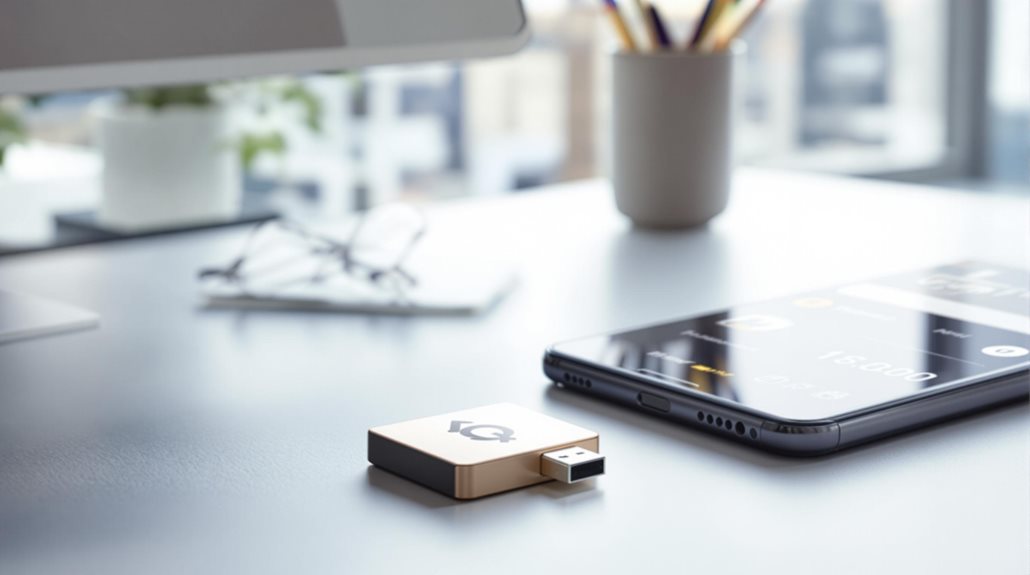A crypto wallet isn't like a regular wallet that holds cash. It's a digital tool that stores special keys needed to access and manage cryptocurrency on blockchain networks. These wallets come in different forms – some connect to the internet (hot wallets), while others stay offline for better security (cold wallets). They can handle multiple types of cryptocurrencies and work with various trading platforms. Understanding crypto wallets is crucial for anyone entering the digital currency world.

While many people are familiar with traditional wallets that hold cash and cards, a crypto wallet serves a different purpose in the digital world. It's actually a digital tool that helps people manage their cryptocurrencies. Unlike physical wallets, crypto wallets don't actually store the digital coins themselves. Instead, they store special codes called public and private keys that give access to cryptocurrency on the blockchain networks.
These digital wallets come in several different types. Hot wallets stay connected to the internet and are easy to use through mobile phones, web browsers, or desktop computers. Cold wallets, on the other hand, keep cryptocurrency information offline, making them more secure against online threats. Hardware wallets are physical devices that look like USB drives and keep crypto credentials safely stored offline. Some people also use custodial wallets, which are managed by cryptocurrency exchanges or other companies. Brain wallets use memorized passphrases as the basis for key generation, though this method can be risky.
Crypto wallets can do many useful things. They let users send and receive different types of cryptocurrencies, keep track of their digital assets, and connect with various cryptocurrency platforms. Most wallets can handle multiple types of cryptocurrencies at once, making it convenient for people who own different digital coins. Leading wallets like Trust Wallet support over 100 blockchains and millions of tokens. They also include features like address books to store recipient information and tools to sign and complete transactions. Many modern wallets now support live conversion rates to help users calculate accurate gas fees for transactions. Decentralized wallets give users full control over their private keys without relying on third-party providers.
Security is a big part of how crypto wallets work. Each wallet comes with a seed phrase, which is a list of 12 to 24 words that can restore access to the wallet if something goes wrong. Many wallets also use two-factor authentication, which means users need two different ways to prove their identity before accessing their funds. The private keys stored in these wallets are like secret passwords that prove ownership of cryptocurrencies.
The technology behind crypto wallets continues to evolve as more people start using cryptocurrencies. They've become an important tool in the cryptocurrency world, acting as a bridge between users and blockchain networks. Some people prefer the convenience of hot wallets for everyday transactions, while others choose the added security of cold storage for larger amounts.
Crypto wallets have made it possible for anyone with an internet connection to participate in the digital currency economy, whether they're making simple transactions or exploring more complex cryptocurrency activities.
Frequently Asked Questions
Can I Store Different Types of Cryptocurrency in the Same Wallet?
Yes, many crypto wallets can store different types of cryptocurrency in one place. These are called multi-cryptocurrency wallets.
Popular options like Exodus, Jaxx, and Atomic Wallet let users keep various digital assets together. However, not every wallet supports all cryptocurrencies.
While Bitcoin and Ethereum are widely supported, some lesser-known coins might only work with specific wallets. Multi-currency wallets make it easier to manage different cryptocurrencies in one spot.
What Happens to My Crypto if I Lose My Wallet Password?
When someone loses their crypto wallet password, their funds remain on the blockchain but become completely inaccessible.
It's like having money in a safe but forgetting the combination. About 20% of all Bitcoin is locked away due to lost passwords.
While password recovery services exist, they're expensive, costing around $500 per day with no guarantee of success.
The funds don't disappear – they're just frozen forever unless the password is recovered.
Are Hardware Wallets Completely Safe From Hackers?
Hardware wallets aren't completely hack-proof, but they're considered one of the safest ways to store cryptocurrency.
While they're well-protected against most online threats due to their offline nature, they still have some vulnerabilities.
Physical theft, tampering, or sophisticated attacks targeting the device's firmware can pose risks.
User errors, like falling for phishing scams or mishandling recovery phrases, remain the biggest security threats even with hardware wallets.
How Much Does It Cost to Set up a Crypto Wallet?
The cost of setting up a crypto wallet varies widely based on the type chosen.
Basic software wallets (hot wallets) are typically free, while premium versions can cost up to $50.
Hardware wallets (cold wallets) range from $50 to $200.
Mobile wallets are usually free or cost up to $5 for extra features.
Paper wallets only require printing costs.
Desktop wallets are mostly free, though some charge up to $20.
Can I Transfer Crypto Between Different Types of Wallets?
Yes, crypto can be transferred between different types of wallets.
It's like moving money between bank accounts. Users can send crypto from a hot wallet to a cold wallet, or vice versa. They'll need the recipient's public address to make the transfer.
The process usually takes a few minutes to complete, and there might be small network fees involved.
Most wallets have user-friendly interfaces that make transfers straightforward.





